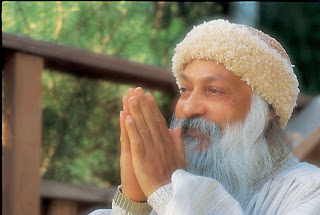Biography of OSHO
Osho, originally named Rajneesh Chandra Mohan Jain, and later known as Bhagwan Shree Rajneesh and finally as Osho, was a spiritual teacher, mystic, and the founder of the Rajneesh movement, which gained international prominence in the 1970s and 1980s. Born on December 11, 1931, in Kuchwada, a small village in central India, he became one of the most controversial and widely followed spiritual leaders of the 20th century.
 |
| Biography of OSHO |
Early Life and Education:
Osho was raised in a Jain family. He earned a Bachelor’s degree in philosophy from D.N. Jain College in Jabalpur and later received a Master’s degree in philosophy from the University of Saugar. He taught philosophy at the University of Jabalpur for a short period before becoming a spiritual teacher.
Read More: Biography of Bulleh Shah
OSHO’s Teachings and Philosophy:
Osho’s teachings, often referred to as the Rajneesh movement, blended elements of Eastern philosophies, particularly aspects of Zen Buddhism, Sufism, Hinduism, and Taoism, with insights from Western psychology and philosophy. He emphasized the importance of meditation, self-awareness, and living in the present moment. Osho’s discourses and teachings covered a wide range of topics, including love, meditation, sexuality, creativity, and human consciousness.
Commune in Oregon:
In the 1980s, Osho and his followers established a large intentional community called Rajneeshpuram in Oregon, USA. The commune faced various legal and social issues, leading to Osho’s arrest and eventual deportation from the United States.
Later Years and Passing of OSHO:
After leaving the United States, Osho returned to India and settled in Pune, where he continued to teach and lead meditation camps. He also initiated a controversial therapy called the Dynamic Meditation, which gained popularity among his followers.
Osho passed away on January 19, 1990, at the age of 58, in Pune, India.
OSHO’s Legacy and Controversies:
Osho’s teachings and the Rajneesh movement continue to influence spiritual seekers worldwide. His ashram in Pune, now known as the OSHO International Meditation Resort, attracts visitors from around the globe.
Despite his influence and the positive impact he had on many of his followers, Osho’s life was marred by controversies, including legal issues, allegations of financial misconduct, and criticism from religious and political groups. His teachings remain polarizing, with passionate supporters and vocal critics.
Osho’s books and recorded discourses are widely available, and his teachings on meditation, mindfulness, and self-discovery continue to inspire people seeking spiritual growth and inner transformation.